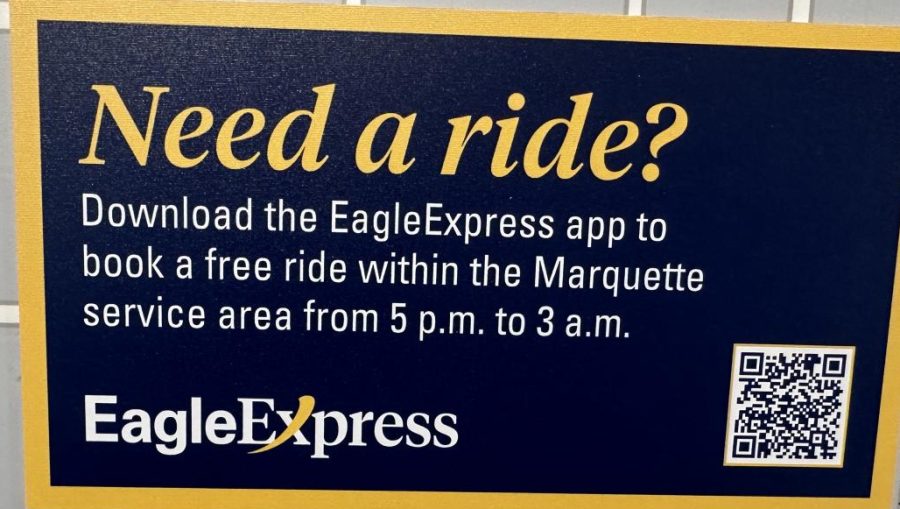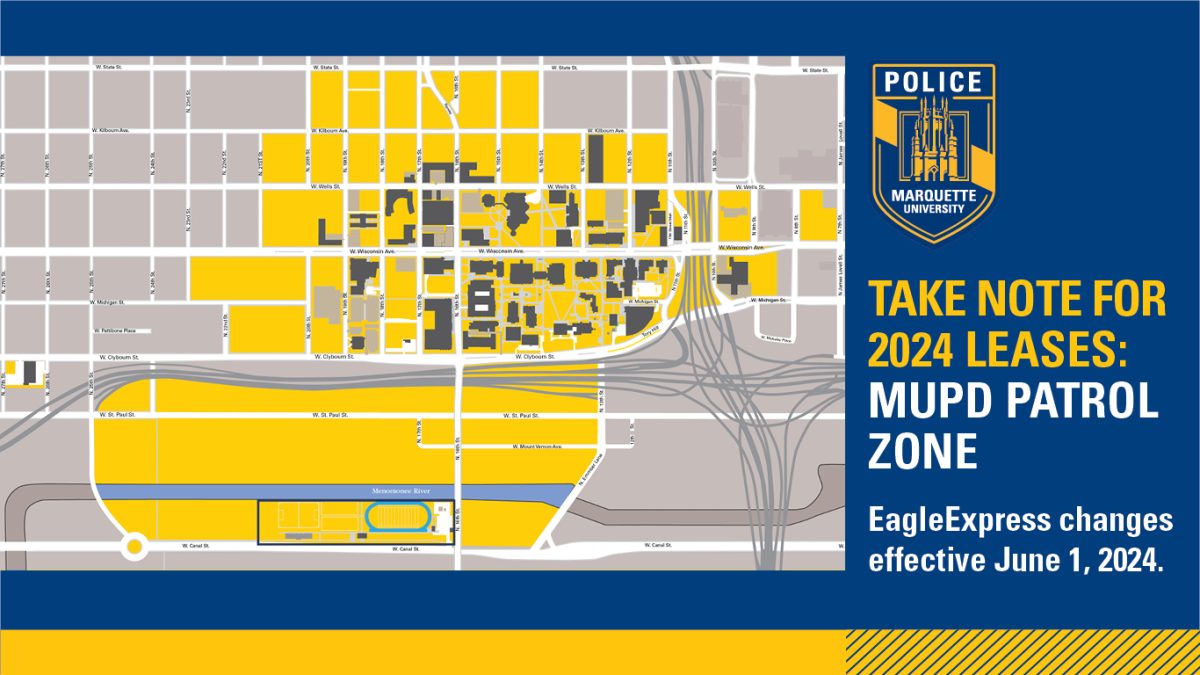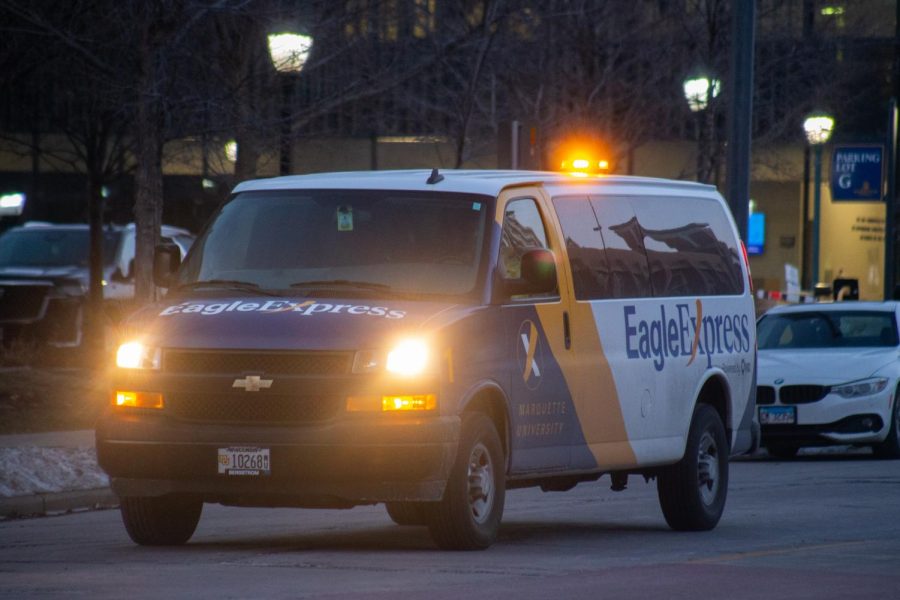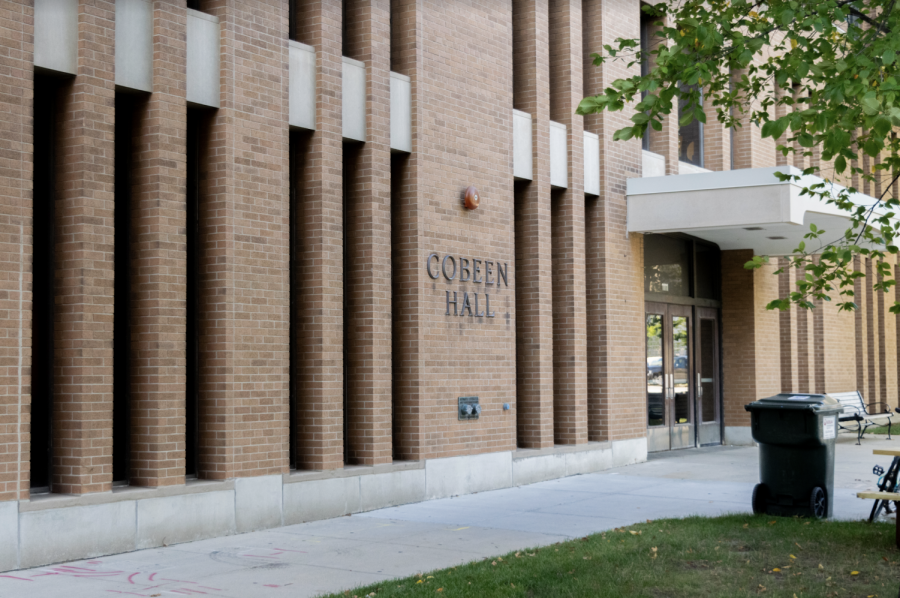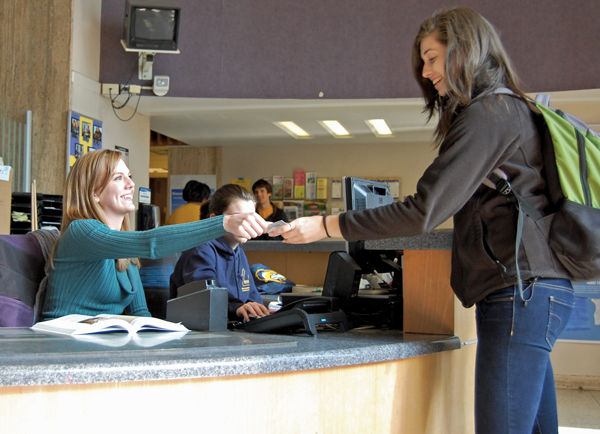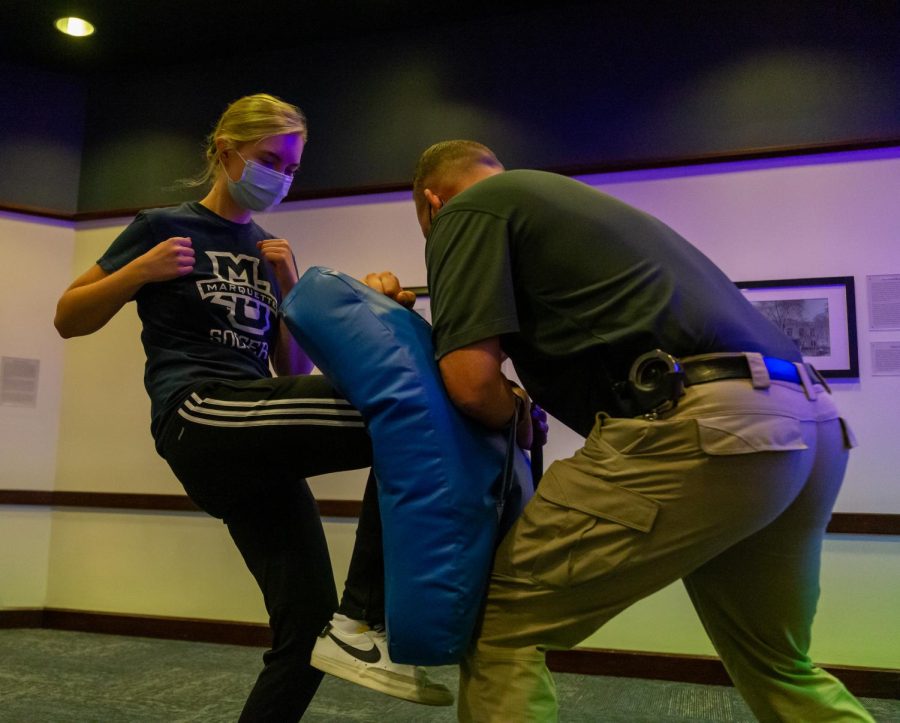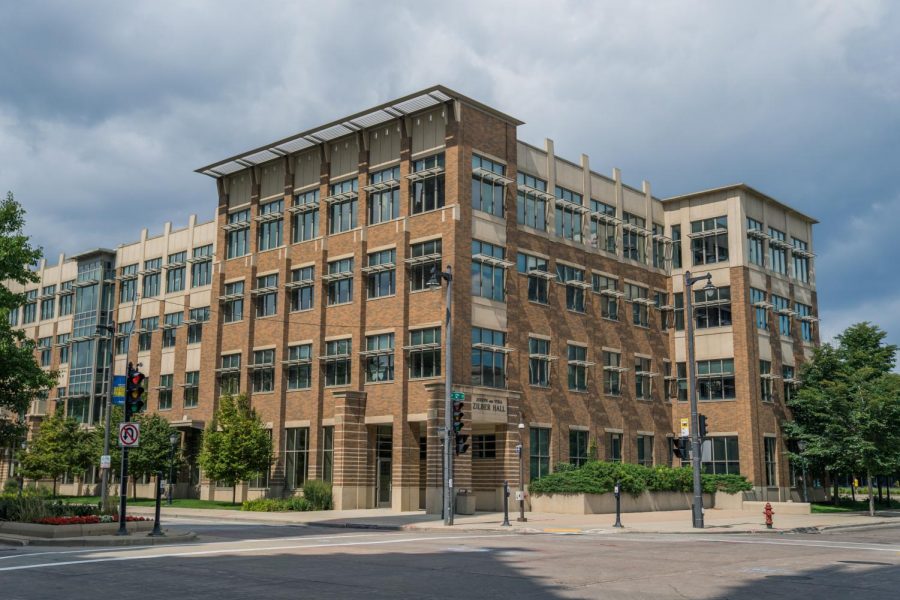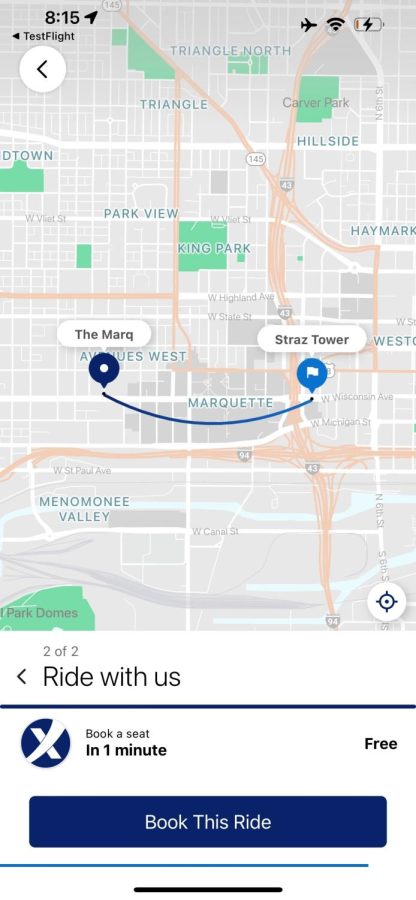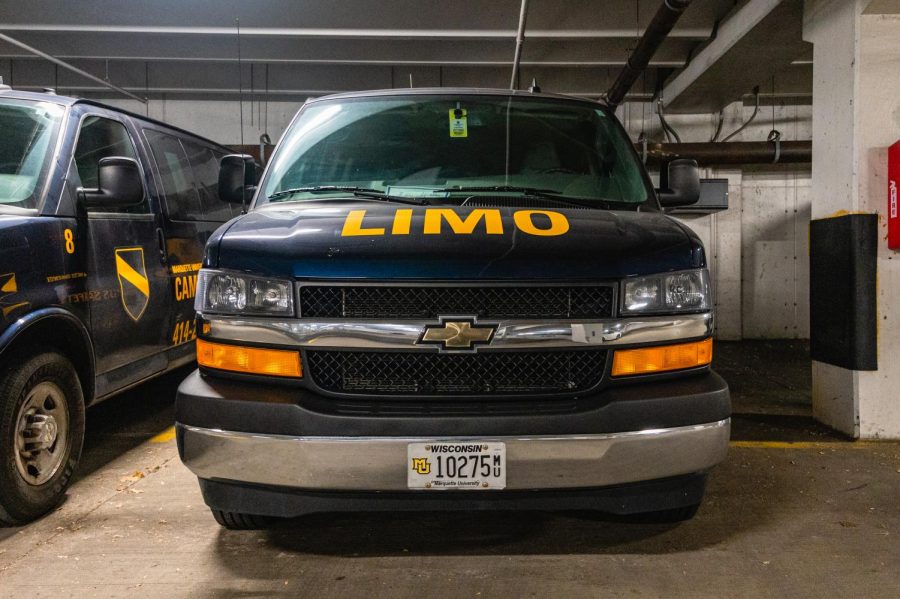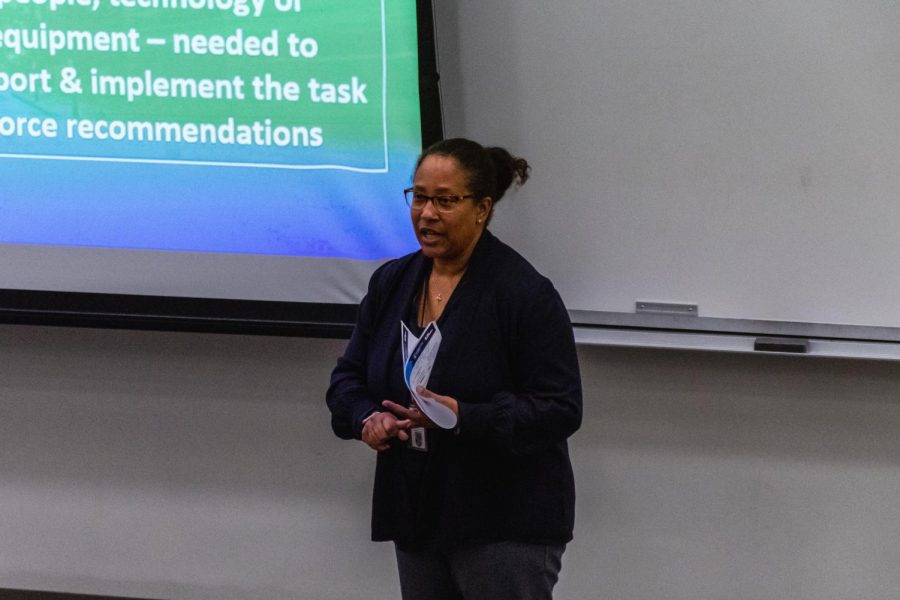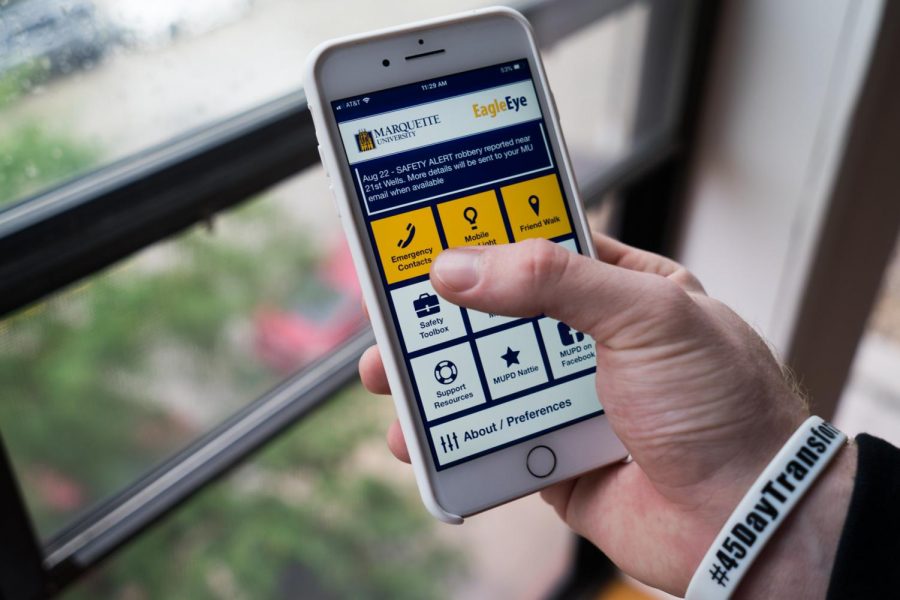Marquette students may not be hearing the familiar, “Just have your COVID Cheq and be ready and waiting outside,” response that they did when dialing the LIMO phone number back in 2022. Now, they may be directed to Marquette’s newest campus resource.
Marquette’s now just under a month old “EagleExpress” has been operational since the start of the 2023 spring semester.
The app is powered by Via Transportation, an on demand public transit software company.
Laney Cloud, Via’s central region partnerships lead, believes that Marquette’s EagleExpress service has performed well since its launch, noting that nearly 2,400 accounts have been created, having completed around 2,000 rides with nearly 100% ride fulfillment.
The app functions similarly to other ride-sharing services such as Uber and Lyft, allowing users to track their rides and giving an estimated arrival and drop-off time.
Some students said that those very features directly correlate to their personal idea of a safer ride-share experience.
“I think in terms of the safety aspect, it is definitely an upgrade,” Liam Reardon, a sophomore in the College of Arts & Sciences, said. “Being able to just wait inside and know when your ride is going to arrive is a lot better than not knowing exactly.”
With Via having already partnered with Harvard University, Northwestern University and New York University, those involved in Marquette’s transition from LIMO to EagleExpress said that they knew exactly what they were looking for since they had already seen the numbers and results that Via accomplished with those institutions.
Marquette University Police Department assistant chief Jeff Kranz oversaw much of the communication with Via and other universities, making mention of hope to improve the university ride service with an emphasis on efficiency and user-friendliness.
“We had unique needs that they were already meeting at other universities. We wouldn’t be creating a program. This was something that was already designed. It wasn’t an out-of-the-box thing. It was ready to go,” Kranz said.
That same “ready to go” mindset seems to also be at the center of students’ praise for the new service.
“I could time out how far away I wanted them to be, so that was a really nice thing. I had a little bit more time to do what I wanted before I knew that they were gonna be there,” Alexa Hockers, a sophomore in the College of Nursing, said.
As a frequent user of the former LIMO service, Hockers appreciated having the ability to know pick-up and drop-off times, allowing for better communication with friends.
“I also really liked that I could track where I was. Just let the person know that ‘Hey, I’m going to be at your place at this time,'” Hockers said.
Like other students, Hockers emphasized the safety aspect more than anything else.
“I didn’t have to wait on the side of the road in Milwaukee at night, which I think was really helpful, definitely took the nerves out of me going to visit my friend,” Hockers said.
Although the Milwaukee Journal Sentinel reported that violent crime in Milwaukee went down by 7% in 2022, students at Marquette are no strangers to hearing about other students being victims of robberies.
For MUPD, they said they plan on using the same features to their advantage as well. Kranz mentioned increased access to analytics from Via as an added benefit to campus safety.
“I can see that a lot of students get picked up here or dropped off here. I can direct controls to provide additional patrols in those areas and increase safety in the high–traffic areas on campus,” Kranz said.
Oscar Messner-Roel, a junior in the College of Arts & Sciences has been an EagleExpress driver since Oct. 2022, so he has seen both the LIMO and EagleExpress system as a driver.
“The loss of manually claiming calls and routing the job itself is much less tactic involved and boring,” Messner-Roel said.
Messner-Roel referred to the former process of hearing a dispatcher calling in a location to all the drivers and whichever driver was closest would take the rider. On top of that, he noticed that students have been complaining about the app itself.
“The biggest complaint I have heard from students is that the software keeps riders in the van for unnecessarily long amounts of time,” Messner-Roel said.
For Via developers, they say feedback like this is most important for improving the app experience.
“Via is committed to ensuring our rider and driver app experience is as intuitive and efficient as possible,” Cloud said. “Any potential decisions to update the current EagleExpress app or service design would be done in partnership with Marquette University and would be communicated directly to riders and drivers.”
Yet, after a week of EagleExpress use, one student is still wondering one last thing.
“I just wonder why they had to change the name, I really liked LIMO,” Reardon said.
This story was written by Kevin Fitzpatrick and TJ Dysart. They can be reached at kevin.m.fitzpatrick@marquette.edu and theodore.dysart@marquette.edu

